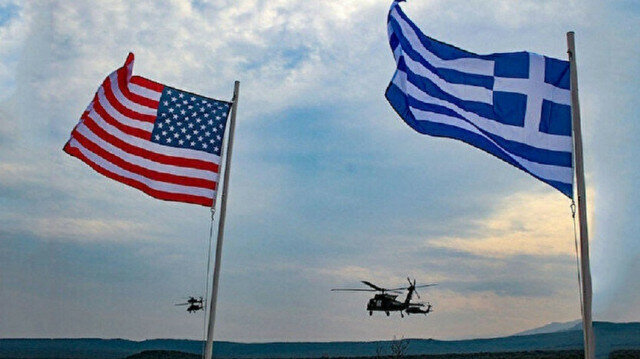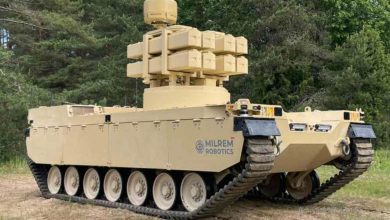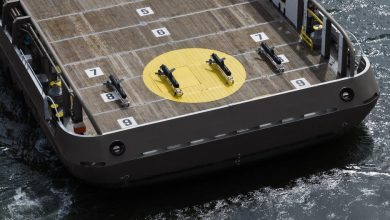‘Closer US-Greece ties part of scramble to contain Turkey’s growing regional power’

Analysts say US, Greece fear Ukraine war has fundamentally changed transatlantic security, amplified Turkey’s influence
Weapons, money and increasingly close military ties have all been prominent features of recent bilateral engagements between the US and Greece.
Washington has secured three more bases in Greece this month, in addition to the one it was already operating, and finalized deals to give Athens state-of-the-art weapons systems, all but shedding its purported neutral stance on the longstanding rivalry between Turkey and Greece.
President Joe Biden hosted Kyriakos Mitsotakis in Washington last week, watching on as the Greek premier regurgitated timeworn claims against Ankara in his address to the US Congress.
Analysts view these steps as a reflection of a creeping fear that the Russia-Ukraine war has fundamentally changed the transatlantic security architecture and cemented Turkey’s place as a legitimate regional power.
“Turkey’s rise as an autonomous regional power is the main factor in this intensifying Greek-US cooperation,” said Hasan Koni, a scholar on strategic studies at Istanbul Kultur University.
“Turkey’s Mavi Vatan, or Blue Homeland, doctrine and consequently growing capabilities of the Turkish Navy, as well as the country’s decisive role in the conflicts in Libya and Karabakh, has had a profound impact on Greek decision-makers,” he explained.
The American security apparatus has also recognized that the balance of power in the region is shifting toward Turkey and needs to be “checked by empowering Greece,” he said, adding that Washington’s push for more Greek bases is aimed at “containing Turkey.”
– Messages and signals
Arda Mevlutoglu, an expert on defense affairs, said the renewal of the Mutual Defense Cooperation Agreement (MDCA) and increasing military cooperation could be viewed as an “American endorsement for Greece’s ambitions in the region.”
The US military buildup in Greece and joint drills with the Greeks in Eastern Thrace do not pose a direct military threat to Turkey, but the “context and timing of this military activity sends a direct message” to Ankara, he added.
This view was echoed by Sine Ozkarasahin, an analyst at the EDAM think tank in Istanbul.
“While these exercises do not pose an imminent threat, they do send negative signals to Turkey, which was left out in the cold during drills that happened right on its doorstep,” she said.
She explained that the US efforts to control more bases in Greece were part of its new strategy for the wider Eastern Mediterranean region and the Balkans.
She warned that the MDCA renewal and consequent actions could “spoil the already fragile balance of power between Turkey and Greece.”
“Historically, the US played a buffer role between the two NATO members and de-escalated any tensions. This mediation was critical for the alliance’s cohesion,” said Ozkarasahin.
“Such a disruption would have implications for Turkish-Greek bilateral relations and also impact regional security in critical areas of contestation, such as the Eastern Mediterranean and NATO’s eastern flank,” she added.
Her advice to Washington was “to maintain the balance of power between Ankara and Athens” and take steps to “prove its impartiality.”
One such opportunity lies in a possible deal to sell F-16 fighter jets to Turkey, she added, referring to an agreement that the Biden administration has recently indicated could materialize.





